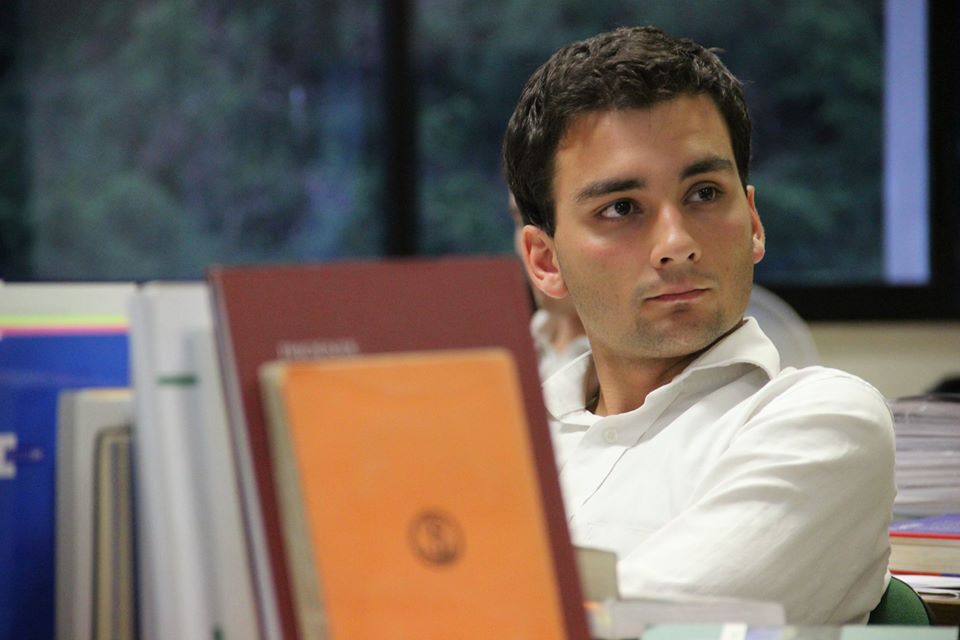Meet and Greet: Darius Ruda
Last semester our BA program welcomed a new member of the academic staff – senior lecturer Darius Ruda. We have recently had a chance to talk to him and learn more about his academic interests and impressions about St. Petersburg

— Could you please tell me about your education and professional background?
As a student, I began a degree in Classical philology at the University of Barcelona. After that, I moved into different studies. Although I still worked on philology in Freiburg and in Rome, and then I moved into European affairs in Paris. For my Master’s degree, I relocated to Berlin, where I did Political Science, and then I went to the College of Europe in Warsaw. That’s where I finished my studies and started working at Novosibirsk State University, and now I’m here.
— What are your academiс interests?
My academic interests mainly encompass two fields of research. The first one is relations in general between what it would be the EU and NATO, on the one hand, and the Russian Federation, on the other. And the second field would be nationalism and ethnic minorities in all of Europe. To put it broadly.
— And why have you chosen Russia as the destination for your practice?
Well, it is very much related to both fields of research, especially for the first one, since these are the relations between Western Europe, broadly speaking, or Western institutions, with the Russian Federation, relations between these two "worlds".
— Which books and articles influenced your academic career or maybe your understanding of the world in general?
Yes. The preliminary book I would talk about is a historian’s one. That’s Norman Davies. He loves massive books, as a matter of fact, but you don’t have to go through all of them, from the first page to the very last one. But this book - ‘Europe: A History’ - you can actually read as a novel. And it is impressive. So encyclopaedic and very well-written. And it highlights the fact that Europe is such a vast concept that it takes lots and lots of pages. It’s a very good starting point. And for other more specific authors, I would say that all those who tried to relate nationalism to the idea of national identity have interested me and influenced my research choices. You have many, like Eric Hobsbawn, Michael Billig, or Anne-Marie Thiesse, who was, in fact, my professor, and,the most important author among all of them, probably, Benedict Anderson. I think these are currently the main and most accepted theories relating to nationalism and national identity. I do not necessarily agree entirely with those works, but those readings gave me the strength and interest in trying to change how we look upon these uneasy, sometimes uncomfortable concepts.
— How do you perceive St. Petersburg? Do you like it?
Yes! I had visited St. Petersburg twice already before I moved here last year. It’s one of the most beautiful cities in Russia, for sure, and in Europe, because I do consider Russia to be a part of Europe. You cannot possibly get bored here, as there is plenty of things to do and always something to visit still for the first time. You cannot know everything about this city, which is quite unique. If you just read about its history, there’s no other place like it. So, I feel quite alright here!
Interviewer: Ekaterina Shevyakova, 3rd year student of the BA Program in Political Science & World Politics
Photo: Darius' Facebook page
Darius Ruda

